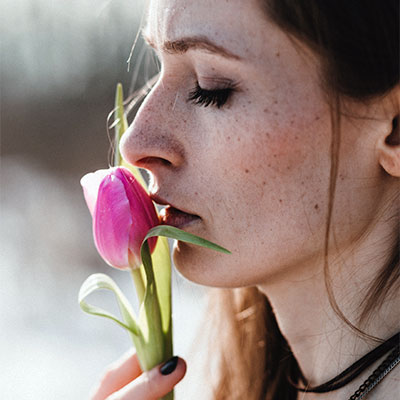
Dear Stephen,
Can you recommend some herbs or other way to overcome the loss of taste and smell I’ve experienced since getting sick with the virus earlier this year?
Stephen’s response:
Here are some interventions that have been found to help loss of smell. They are less effective for loss of taste, but they do seem to help.
Covid-19 Herbal Protocol
A number of people have reported that use of my herbal protocol for treating Covid-19 infections has restored their loss of smell.
Zinc/Quercetin Combination
Quite a few people have said that a combination of these two supplements restored their loss of smell. Dosages: Zinc, 50mg daily. Quercetin, 200-1000mg daily. There are various pre-made combinations on the market; I don’t know how well they work. People report various dosages on the quercetin, the zinc tends to be at 50mg in most reports. (I found one study using these two supplements to treat Covid-19 infections, 50mg zinc and 800mg quercetin, daily, so that seems a good dosage to begin with).
Ivermectin/Aspirin Combination Treatment
Complicated, as all forebrain people make things, but . . . here it is:
- Ivermectin, 0.2 mg per kg of body weight daily for two days, taken after dinner. If not resolved by second day then . . .
- Take aspirin, 100 mg after breakfast and 100 mg after dinner for five days (3rd to 7th day). Begin taking ivermectin again on the fifth and sixth day, 0.4 mg per kg of body weight, take half the dose after lunch, the rest after dinner. If not resolved by morning of 8th day, then . . .
- Continue taking aspirin, same dosage and times. Begin taking L-Lysine, 500mg daily, every three days increase dose by 500mg until you are at 2000mg per day. On the 8th day after beginning L-Lysine, once again take Ivermectin 0.4 mg per kg daily in two divided doses as before for three days. Reduce arginine rich foods in diet, including coffee, soft drinks, and all citrus fruits. Then stop protocol.
Outcomes:
About 2/3 of people recover taste after the first two days. Another twenty percent recover taste after aspirin/Ivermectin combination. Nearly all people recover some or all taste after the final aspirin/Ivermectin/L-Lysine combination. (Note: this was a small trial but it has apparently continued to be used with good success in clinical practice.)
Olfactory Training
There has been a lot of real world work on this intervention. It takes several months but seems to be effective for most people if diligently done. The process is involved and utilizes, in nearly every instance, essential oils to retrain the sense of smell. The best way to learn about it is to do an internet search on “olfactory training.” There are several companies that specialize in it (one by someone who suffered loss of smell), their directions are easy to understand, and they seem very responsive to inquiries. If you wish to go deeper you can search Google Scholar for the journal studies which do show effectiveness using this technique.
Acupuncture and Chinese Medicine
There are a large number of studies showing that acupuncture with or without Chinese herbal medicines are effective in restoring loss of smell. Acupuncture alone restored smell (and sometimes taste) within two to twelve months. (I consider the 12 month period problematical. Most people who have post-viral loss of smell recover it within eight months anyway.) The herbal combinations used were Dangguijakyak-san (a Korean blend, no idea what that is, a search turned up nothing usable), Cang Er San, and Xiao Yao San.
Cang Er San contains: Xanthii Fructus, Magnoliae Flos, Allii fistulosi Bulbus, Angelicae dahuricae Radix.
Xiao Yao San contains: Bupleuri Radix, Angelica sinensis Radix, Methae haplocalycis Herba, Atractylodis macrocephalae Rhizoma, Zingiberis Rhizoma preparatum, Poria, Blycyrrhizae Radix, Paeoniae Radix alba.
Chamomile Nasal Irrigation
Make a decoction of chamomile (bring to boil, reduce to simmer until water is decreased by half then strain very well). Use a neti pot for nasal irrigation daily for a week (ick) or put the decoction into a nasal sprayer and use three times daily for a week. (This is a traditional Persian medicine approach; I have no data on how well it works. If none of the other approaches help, perhaps this one will.)
Lion’s Mane (Hericium erinaceus)
This herb is fairly good at restoring damaged neural structures in the brain and body. There are some reports of this helping restore sense of smell. Tincture: ½ to 1tsp 3x daily.
Copyright © Stephen Harrod Buhner, All Rights Reserved.













Dangguijakyak-san (a Korean blend, no idea what that is, a search turned up nothing usable), is Dangui Shaoyao San